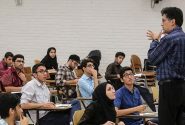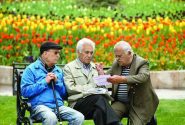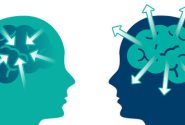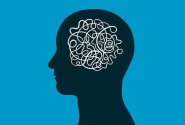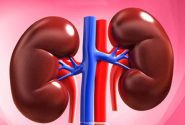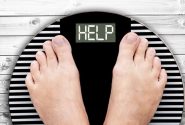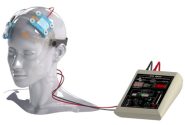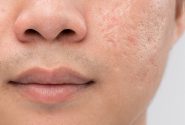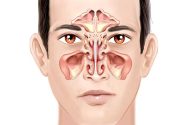به گزارش پایگاه خبری تحلیلی تسریر، به نقل از مدیسن نت، به گفته محققان، این مطالعه نمی تواند ثابت کند که این روش باستانی شروع آلزایمر را کاهش می دهد یا از آن جلوگیری می کند، اما به نظر می رسد برخی از اشکال زوال عصبی را معکوس می کند.
دکتر هلن لاورتسکی، سرپرست تیم تحقیق و روانپزشک سلامت در مؤسسه علوم اعصاب و رفتار انسانی جین و تری سمل، بخشی از UCLA Health است و گفت: “یوگا برای کاهش استرس، بهبود سلامت مغز، عملکرد ذهنی حافظه و کاهش التهاب و بهبود انعطاف پذیری عصبی مفید است.”
محققان خاطرنشان کردند که از آنجایی که زنان بیشتر عمر می کنند و با افزایش سن تحت تأثیر تغییرات سطح استروژن قرار می گیرند، احتمال ابتلای زنان به آلزایمر در مقایسه با مردان دو برابر بیشتر است.
مطالعه جدید شامل بیش از ۶۰ زن ۵۰ ساله یا بالاتر بود. همه بیماران در یک کلینیک قلب دانشگاه UCLA بودند و قبلاً مشکلات حافظه و عوامل خطر را گزارش کرده بودند که جریان خون ضعیفتر مغز را نشان میداد.
تیم لاورتسکی زنان را به دو گروه تقسیم کرد. یک نفر به مدت ۱۲ هفته به جلسات هفتگی یوگا (با تمرکز بر مراقبه و کار تنفسی به جای ژست های فیزیکی) پیوست. در حالی که دیگری آموزش تقویت حافظه را انجام داد، فعالیت هایی برای کمک به تقویت قدرت حافظه استفاده می شود.
محققان سلامت عصبی هر زن را با استفاده از نمونههای خونی که علائم ژنتیکی یا مولکولی پیری یا التهاب مغزی را ردیابی میکردند. شرکت کنندگان همچنین از نظر تغییرات در تفکر، حافظه ذهنی، افسردگی و اضطراب مورد آزمایش قرار گرفتند.
تیم لاورتسکی گفت که به نظر می رسد یوگا با تغییرات مثبتی مرتبط است که توسط زنانی که تمرین حافظه را انجام داده اند، تجربه نکرده اند.
مؤسسه UCLA Health اعلام کرد: اینها شامل بهبود قابل توجه در مشکلات ذهنی، پیشگیری از کاهش مواد مغزی، افزایش اتصال در هیپوکامپ که حافظههای مرتبط با استرس و بهبود سیتوکینهای محیطی و مولکولهای ضد التهابی و ضد پیری است، را مدیریت میکند.
تیم متذکر شد که تمرین حافظه تا حد زیادی فواید بسیاری دارد.
لاورتسکی گفت که به نظر نمی رسد هیچ یک از گروه ها بهبودی در اضطراب، افسردگی، استرس یا انعطاف پذیری نداشته باشند، اگرچه ممکن است این به این دلیل باشد که اکثر زنان از قبل از نظر روانی سالم بودند.
این مطالعه اخیرا در مجله Translational Psychiatry منتشر شده است.
لاورتسکی معتقد است که برای زنان مسنتر که نگران تابآوری مغز هستند، یوگا و تمرین حافظه ممکن است بهترین راه پیش رو باشد.
لاورتسکی گفت: «در حالت ایدهآل، مردم باید یوگا و تمرین حافظه را انجام دهند زیرا بخشهای مختلف مغز را آموزش میدهند و اثرات کلی متفاوتی بر سلامتی دارند. یوگا این اثر ضد التهابی، کاهش دهنده استرس و ضد پیری مغز را دارد که مکمل تمرین حافظه است.
In a new study, yoga appears to have bolstered the brain health of older women who had risk factors for Alzheimer’s disease.
The study can’t prove that the ancient practice will slow or prevent the onset of Alzheimer’s, but it did seem to reverse some forms of neurological decline, researchers said.
“That is what yoga is good for — to reduce stress, to improve brain health, subjective memory performance and reduce inflammation and improve neuroplasticity,” said study lead author Dr. Helen Lavretsky. She’s a health psychiatrist at the Jane and Terry Semel Institute for Neuroscience and Human Behavior, part of UCLA Health.
The researchers noted that, because they live longer and are affected by changes in estrogen levels as they age, women have about twice the odds of developing Alzheimer’s compared to men.
The new study involved more than 60 women ages 50 or older. All were patients at a UCLA cardiology clinic and already had reported memory issues and risk factors indicating poorer brain blood flow.
Lavretsky’s team divided the women into two groups. One joined weekly sessions of Kundalini yoga (focusing on meditation and breathing work rather than physical poses) for 12 weeks; while the other took memory enhancement training, where stories or lists are used to help boost memory powers.
The researchers tracked each woman’s neurological health using blood samples that tracked genetic or molecular signs of brain aging or inflammation (both of which can encourage Alzheimer’s).
Participants were also tested for changes in thinking, subjective memory, depression and anxiety.
Kunadlini yoga appeared linked to positive changes that weren’t experienced by women who took the memory training, Lavretsky’s group said.
“These included significant improvement in subjective memory complaints, prevention in brain matter declines, increased connectivity in the hippocampus which manages stress-related memories, and improvement in the peripheral cytokines and gene expression of anti-inflammatory and anti-aging molecules,” a news release from UCLA Health stated.
Memory training did have some benefit, the team noted, largely in terms of long-term memory.
Neither group appeared to experience improvements in anxiety, depression, stress or resilience, Lavretsky said, although that may be because most of the women recruited were already mentally healthy.
The study was published recently in the journal Translational Psychiatry.
Lavretsky believes that, for older women concerned about brain resiliency, combining yoga and memory training might be the best path forward.
“Ideally, people should do both because they do train different parts of the brain and have different overall health effects,” Lavretsky said. “Yoga has this anti-inflammatory, stress-reducing, anti-aging neuroplastic brain effect which would be complimentary to memory training.”
تسریر مراقب سلامتی شماست!







